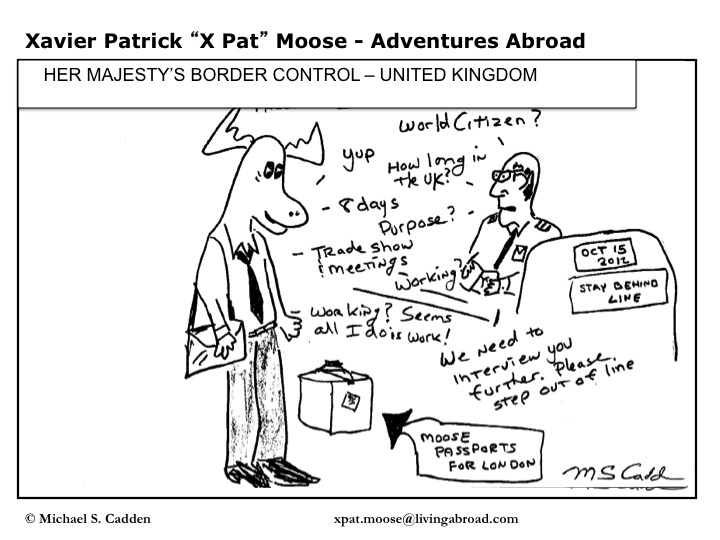As seen from this page from a 2015 survey conducted by the National Foreign Trade Council, your business travelers pose significant risks as compared to long-term assignees.
1. Do your employees know how to answer customs officials? Employees who are not prepared for such conversations may reply in ways that do not match their paperwork. In these cases, employees can be turned away at the border. More than 54% of survey respondents indicated that their employees have been misrepresenting their business activities.
2. How do you track your employees? Many companies rely on the records from the travel company used to book business travel. Does the business unit know? Has the employee spoken to anyone about keeping track of time in the foreign country? This seems to be a major concern, as 56% of survey respondents are not able to track their business travelers.
3. Are taxes monitored? Whether taxes are underpaid or not paid at all, the fines are stiff and a company’s resulting liability may be quite burdensome. Fifty-seven percent of Global Mobility Managers said their companies were in violation of tax laws. Your company can be banned from doing business in a particular country if violations are not properly managed.
4. Does your employee know the difference between a work visa and a business visa? Without a proper discussion with either the business unit that’s sending them abroad or a full service travel company, how would an employee know? Over 62% of respondents replied that employees were using business visas to circumvent getting work visas, which take more time.
And overstaying a visa, even by mistake, can result in onerous consequences. Just last week Thailand issued new rules around this:
“Visa overstayers are now subject to reentry bans and random passport checks according to stricter new rules that are effective immediately. Foreign nationals should therefore carry their passport or a photocopy of their passport and visa stamp at all times.”
A recent sampling of other risky situations includes:
- Tax assessments on employers with business travelers who exceed workday thresholds.
- Suspension from doing business in Australia for business traveler visa and tax noncompliance.
- Imprisonment for travelers overstaying visas or failing to pay taxes.
- IRS requests for proof of filing U.S. income tax returns for L-1 visa holders.
- IRS requests of data on all business travelers visiting the U.S. from group companies (i.e., related companies – not just one entity).
The problem is the gap in education and communication to the business traveler. We understand the time constraints involved. Companies tend to have many more business travelers than expatriates. Online tools can help, especially those from a trusted source.
Living Abroad’s International Relocation Center includes detailed information on visa requirements, work permits, and length of stay on over 140 countries plus information on business practices. Access to this information can be linked to your travel partner and HR department. It’s important for a business traveler to access this information before booking travel.
By supporting your business travelers, you will protect the good name of your company!
Written by Cathy Heyne, GMS-T, Living Abroad-Managing Director



